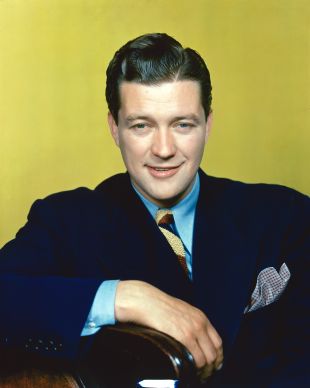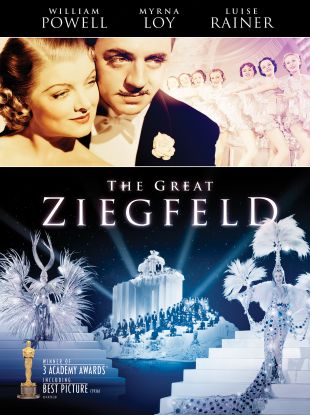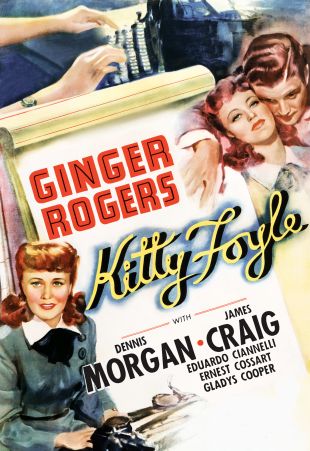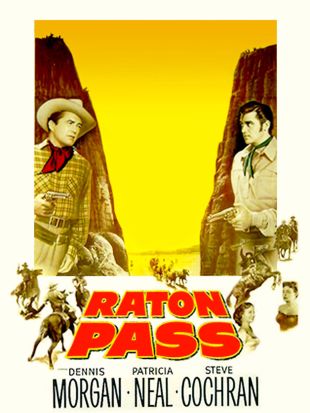Though Dennis Morgan would later allude to Milwaukee, Wisconsin as his hometown, he was actually born in the small burg of Prentice. After attending Carroll College in nearby Waukesha, Morgan acted in stock companies, worked as a radio announcer, and sang with travelling opera troupes. Still using his given name of Stanley Morner, he was signed to an MGM contract in 1936, then spent a frustrating year playing bit parts. What might have been his big break, as soloist in the "Pretty Girl is Like a Melody" number in MGM's mammoth The Great Ziegfeld (1936), was compromised by the fact that the studio dubbed in Allan Jones' singing voice. Morgan then moved to Paramount, where he played supporting roles under the new moniker Richard Stanley. In 1939, he landed at Warner Bros., where he became "Dennis Morgan" for good and all. His Warners roles were better than anything he'd had at MGM or Paramount, though he still was inexplicably prevented from singing. His biggest acting break came about when Warners loaned him to RKO to appear opposite Ginger Rogers in Kitty Foyle (1940). Finally in 1943, he was given a full-fledged singing lead in Warners' The Desert Song. This led to a series of well-received musicals which earned Morgan a faithful fan following--and, for a brief period, he was the studio's highest paid male star. In 1947, Morgan was teamed with Jack Carson for a group of musical comedies which Warners hoped would match the success of Paramount's Hope-Crosby "Road" pictures. Best of the batch was Two Guys From Milwaukee (1947), which had its premiere in that city. When the sort of musicals Morgan starred in went out of fashion in the 1950s, he shifted creative gears and appeared in westerns and adventure yarns. In 1959, he headlined a TV cop series, 21 Beacon Street. For all intents and purposes retired by the 1960s, Dennis Morgan re-emerged to play cameos in two theatrical features, Rogue's Gallery (1968) and Won Ton Ton, the Dog Who Saved Hollywood (1976).

Dennis Morgan
Share on


